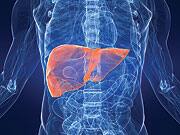Life Extension Magazine®
Cortisol is a hormone that, when released in excess, can create a host of pathological conditions in the body. When we are under stress or have an infection, cortisol raises our blood pressure and blood sugar. These changes help us survive short periods of stress, but they hurt us when they continue for years. The problems associated with chronically elevated cortisol levels include:
Cortisol is a “stress hormone” that is responsible for many of the long-term health consequences suffered by those who encounter frequent stressful situations. In this article, you will discover data about a natural remedy that reduces harmful cortisol levels. The benefits include improved sleep quality, immunity, stress response, and organ function. What you need to know
The Dangers of CortisolOur bodies have a built-in mechanism for protecting us from the effects of acute, immediate stress (say, an attack by a wild animal). That effect, often called the “stress response,” involves production of several hormones in the adrenal gland. Following the immediate “adrenaline rush” that helps us escape the danger, we experience a massive release of cortisol, often referred to as the “stress hormone.” Short-term bursts of cortisol are necessary to help us recover from the effects of stress. They boost blood sugar levels, providing immediate energy. They bolster immune responses in the short-term. They pull calcium from our bones, making it available to muscles for immediate action. They reduce our response to pain, keeping us focused on survival. And they enhance short-term memory, enabling us to evade similar threats in the near future.
Short, intermittent bursts of cortisol helped our ancestors survive in the wilderness and still come to our aid today. But unlike our ancestors, we face chronically stressful situations such as job loss and financial insecurity. Additionally, there are new biological stressors such as obesity and environmental toxins. This chronic stress means that we experience chronic cortisol elevation—where levels of the stress hormone never get a chance to return to normal. This produces a major problem that threatens our health and longevity. The effects of chronic overexposure to cortisol can be devastating. Prolonged cortisol elevations result in sustained elevations of blood sugar, substantial loss of calcium from bones, depression of important immune responses, high blood pressure, loss of muscle mass, increased fat accumulation, and even loss of cognitive function. If you’ve ever seen someone on chronic steroid therapy, say, for protection against transplant rejection, you’ve seen the destructive effects of cortisol: such people develop a classic “moon face,” the result of excess fat and fluid accumulations. They develop a stooped posture, the result of calcium losses from bones. They often succumb to infections, the result of excessive immune suppression. Less obviously, but still of concern, they often develop dangerous hypertension requiring medication, and they can develop a range of cognitive dysfunctions as well. So how can we preserve the beneficial effects of short-term cortisol elevations in response to acute, dangerous stress, while tamping down the dangerous effects of chronic, long-term cortisol elevations? That’s where adaptogens such as rhodiola become important. The reason that the Soviet scientists were so interested in rhodiola was that they recognized its value in situations where long-term stress was an issue. They saw that rhodiola’s adaptogenic powers could balance the impairments produced by chronic stress without interfering with the valuable short-term stress response. Modern science is further validating rhodiola’s ability to mitigate the impact of chronic cortisol elevations. A large, phase III placebo-controlled clinical trial was conducted in Sweden in 2009, studying participants aged 20-55 years with a diagnosis of stress-related fatigue.2 Subjects taking the rhodiola extract had significantly lower cortisol responses to chronic stress than did the placebo recipients—and as a result they had lower scores on scales of burnout and improved performance on cognitive testing. A placebo-controlled Chinese study in 2009 also revealed protective effects of rhodiola on stress-induced cortisol levels in otherwise healthy individuals.3 In this case, subjects who received rhodiola experienced no change in their cortisol levels, while levels rose sharply among placebo recipients when both groups were exposed to chronic stress in the form of endurance exercise. Rhodiola also increased the efficiency with which subjects used oxygen, potentially reducing additional stress from oxygen radicals. Advanced laboratory studies have now demonstrated that rhodiola achieves its cortisol-lowering, stress-fighting effects through several different mechanisms. Rhodiola directly interacts with the brain-adrenal gland system to reduce cortisol production while enhancing stress-resistance proteins.4 It upregulates “stress-sensor” proteins that reduce the production and impact of cortisol, resulting in enhanced mental and physical performance and even longevity.5 And multiple studies have demonstrated the complete lack of side effects from rhodiola supplementation.2,4 Modulating the Stress Response
Unlike any other compound, adaptogens condition your body to respond favorably to stress at the physiological level through a unique mechanism. Adaptogens deliver minute shocks of mild stress that condition your physiology to respond to more major stresses in a favorable way. Interestingly, this is similar to the vaccine theory of innoculating the body with a small but harmless amount of a virus to help the body fend off a major attack.6 Rhodiola reduces fatigue and restores normal mental and physiological functioning, even in stressed humans categorized as having “burnout.”6,7 Studies of highly stressed individuals—doctors working overnight shifts, students studying for major exams—all demonstrate improvements in fatigue level, neuro-motor performance, and perceptive and cognitive function, even when tested under ongoing stressful conditions.8-10 A study of young to middle-aged women with significant impairment from living in psychologically stressful environments demonstrated improved scores on attention, speed, and accuracy during stressful cognitive tasks.11 Those effects were evident just two hours after a single dose of rhodiola combined with Siberian ginseng and Schisandra chinensis. No serious side effects were reported in this or any other study of rhodiola.4
A Powerful Weapon Against AnxietyWhile Rhodiola rosea has demonstrated the ability to help people deal with stress, it has also shown promise in alleviating stress-related symptoms such as anxiety and a diminished appetite. A new study shined a light on rhodiola’s ability to circumvent the symptoms and severity of general anxiety disorder, a common condition characterized by frequent, excessive worry that is out of proportion to external circumstances. Symptoms of the disorder include difficulty concentrating, irritability, tense muscles, sleep disturbances, and trouble controlling worries. Ten participants (ages 34-55) with generalized anxiety disorder received a total daily dose of 340 mg of R. rosea extract for 10 weeks. At the study’s end, the participants demonstrated significant improvements in symptoms of generalized anxiety disorder, as determined by a widely used clinical assessment scale.12 As researchers began to investigate rhodiola in greater detail, they discovered that one of rhodiola’s key components, the phytochemical salidroside, may be responsible for many of rhodiola’s anti-aging properties, as well as an important factor in its ability to help combat anxiety. One animal study showed that salidroside produced notable sedative (calming) and hypnotic (sleep-inducing) effects in a dose-dependent fashion.13 Another study showed that administering salidroside to animals reversed stress-induced anorexia (discontinuation of eating ).14 Together, these findings support rhodiola’s ability to calm individuals subjected to stress and to restore normal patterns of rest and eating. These studies back up centuries of common knowledge in Russia and Scandinavia, where people have used rhodiola to alleviate everyday symptoms of anxiety and poor sleep. |
Enhanced LongevityScientists have found that rhodiola possesses the power to restore malfunctioning biological systems, a key factor in reducing the detrimental effects of aging. In testing multiple organisms, rhodiola was found to enhance healthy responses to negative environmental stressors that include oxidative stress, acute and chronic heat shocks, and toxic chemical exposure.15 In the laboratory, rhodiola was found to protect human cells from premature aging when they were exposed to oxidative stress. Again, scientists used the compound derived from rhodiola called salidroside.16 Salidroside further preserves aging skin cells’ ability to reproduce, thereby creating healthier, more vital skin. One group of scientists found that the salidroside in rhodiola dramatically diminishes pathologic symptoms of aging in laboratory mice by preventing accumulation of inflammatory advanced glycation end products (AGEs).17 Further bolstering rhodiola’s anti-aging credentials is a recent study showing that rhodiola extract helps slow the aging process while extending life span.18 During this study, scientists administered rhodiola extract in the diet to a group of fruit flies. A control group did not receive the dietary rhodiola. The rhodiola-supplemented fruit flies demonstrated a 10% longer life span, compared with control subjects. When examined more closely, it was clear that the rhodiola-supplemented animals displayed decelerated aging, compared with subjects that did not receive the herb.19 Of important note, rhodiola’s anti-aging and longevity-promoting effects appeared to be independent of any special diet.19 This is of vital importance because it suggests that rhodiola provides longevity benefits through a mechanism separate from caloric restriction, which, as Life Extension readers know, is the best-documented method to increase life span to date.20 The possibility that rhodiola could act through a novel mechanism to forestall aging and lengthen life span is remarkable news for the anti-aging community. Bolstering Heart HealthHeart disease remains the number one killer, and doctors report that many cardiac events are stress induced.21,22 Stress, whether physical or emotional, puts extra strain on the heart and other muscles. Numerous studies suggest that rhodiola exerts several protective benefits for the heart.23 A probable link between the administration of Rhodiola rosea extract and prevention of arrhythmia (potentially dangerous abnormal heart rhythms) was discovered in a recent study.24 The study involved test animals receiving Rhodiola rosea each day for 8 straight days. They were then subjected to an agent known to disrupt heart rhythm. Pre-treatment with rhodiola protected the animals against experimentally induced arrhythmia and electrical instability of the heart. The animals who received rhodiola were less vulnerable to heart damage caused by experimentally induced myocardial infarction (heart attack).
Another animal study highlights further potential cardioprotective benefits of rhodiola. In an animal model of coronary artery disease, rhodiola helped decrease the heart muscle’s oxygen consumption while increasing oxygen supply to the myocardium, helping to ensure that the heart muscle has enough oxygen required for optimal function.25 This evidence, combined with earlier animal studies suggesting rhodiola’s ability to reduce cardiac stress-related damage,23 supports the need for further in-depth studies of rhodiola’s cardiovascular benefits in humans.
Vital Organ Function and Enhanced ImmunityAs the major detoxifier for the body, the liver processes countless amounts of toxins and removes them from our body. Rhodiola species support natural antioxidant systems in the liver and protect liver cells from damage by toxins and oxidative stress.26-29 As adaptogens, rhodiola species also carefully modulate the immune system, increasing its response to real threats of infection or malignancy, while preventing excessive inflammation.30-32 A species of rhodiola was found to modulate the immune system to promote a healthy response to certain vaccinations.33 Rhodiola potently inhibits tissue inflammatory responses to irritating drugs, preventing skin redness, swelling, and pain following exposure to the antifungal drug nystatin.30 Rhodiola species possess direct antiviral and antibacterial activities, which may reduce the risk of serious infections.34-38 For example, Rhodiola rosea inhibits the enzymes that flu viruses use to attach to and invade the cells of the respiratory tract, reducing your chances of catching the flu following an exposure.35 Combating Brain Aging
The neurodegeneration in Alzheimer’s and Parkinson’s diseases occurs as a result of inflammation in the nervous system coupled with the accumulation of harmful, pro-oxidant proteins that trigger even more inflammation and ultimately brain cell destruction. Constituents from rhodiola species such as salidroside display powerful antioxidant properties that prevent oxidative, pro-inflammatory effects as well as the formation of these proteins and the subsequent inflammatory cascade.39-43 Fewer brain cells die from oxidative stress.40,44 Nerve cells in the memory centers of the brain resist age-related damage and produce more beneficial neurotransmitters after treatment with rhodiola.45,46 Both short- and long-term memory enhancements have been demonstrated with rhodiola.47-49 Mental performance and acuity under experimentally induced adverse conditions, such as test-taking or sleep deprivation, are also significantly improved.7-9,11 Rhodiola species help aging humans fall asleep faster, longer, and with improved quality of rest.50,51 In one study of men with sleep disturbances, rhodiola increased the amount of time spent in healthful REM sleep, reduced total wakeful time during the night, and markedly increased the “efficiency” of sleep sessions.51 Greater blood oxygenation during sleep was also observed—a key longevity factor.
Physical PerformancePhysical activity and moderate exercise have multiple health benefits, but they also induce injury from oxidative stress, muscle cell damage, and inflammation. There is an important role, therefore, for adaptogens such as rhodiola in mitigating exercise-induced stress. Russian athletes have been known to use adaptogens to promote endurance and improve performance.
Rhodiola increased antioxidant blood levels and minimized oxidative stress-induced muscle damage in trained athletes for up to 24 hours after strenuous activity.52,53 One study showed an increase in the time to exhaustion during exercise, with significant increases in oxygen delivery to muscle tissues during the workout as well.54 Rhodiola species have been used for centuries by villagers living high in the Himalayas to enhance their resistance to the effects of oxygen deprivation and to boost their endurance for strenuous tasks.55 Those effects prove equally beneficial at more moderate altitudes. During exercise, rhodiola helps people work out longer, increasing their oxygen uptake and decreasing muscle damage.53,54 Long-term supplementation boosts energy storage capacity and blood oxygen level prior to exercise, further enhancing exercise capacity and endurance.55 Rhodiola species protect internal organs from the low oxygen levels found at higher altitudes and that also occur during heart attacks and strokes.56,57 A 2011 study revealed something of even greater significance: rhodiola prevents a phenomenon known as vascular remodeling in lung tissue at high altitudes.58
Vascular remodeling describes the thickening of pulmonary blood vessels that contributes to increased blood pressure in the lungs, a condition known as pulmonary hypertension.59 Chronic exposure to high altitude is just one cause of this condition, which leads rapidly to congestive heart failure.60,61 More common causes of pulmonary hypertension include cardiovascular disease, obesity, and obstructive sleep apnea.59,62 Rhodiola’s ability to prevent vascular remodeling, then, may represent an important and sorely needed new approach to managing a major cause of death and disability in older adults.63
SummaryRhodiola is a cortisol suppressing herb that is becoming an increasingly popular dietary intervention in the United States. It is one of a handful of known adaptogens—plant-based compounds known to support long, healthy life span in part by exerting system-wide protective and restorative effects. Rhodiola has been shown to favorably modulate the stress response, restore vital organ function, and boost immunity. It is a low-cost nutrient that combats cognitive dysfunction, minimizing depression and anxiety, while enhancing muscle performance, endurance, and circulatory health. If you have any questions on the scientific content of this article, please call a Life Extension® Wellness Specialist at 1-866-864-3027. | ||||||||||||||||||||||
| References | ||||||||||||||||||||||
|








